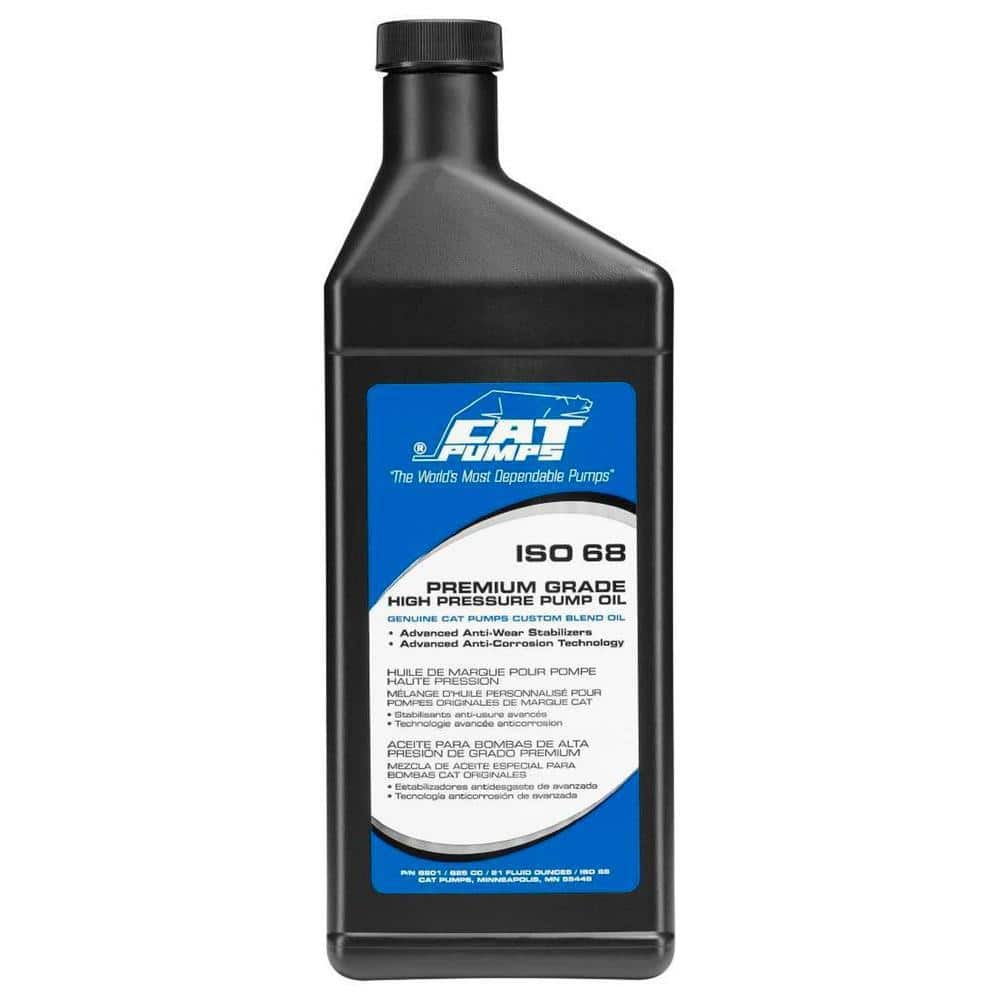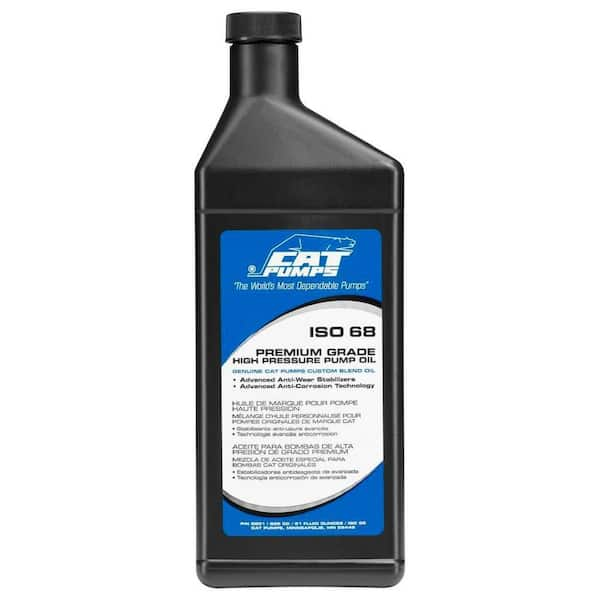Ryobi pressure washers do not require oil as they are electric-powered, not gas-powered machines. Oil is not needed.
Ryobi pressure washers are a popular choice for homeowners and professionals seeking efficient cleaning power. These electric-powered machines are known for their ease of use and versatility in tackling various cleaning tasks around the house or job site. If you’re considering investing in a Ryobi pressure washer, you can rest assured that you won’t have to worry about the hassle of adding oil to keep it running smoothly.
With Ryobi’s innovative design and reliable performance, you can confidently tackle your cleaning projects without the need for oil maintenance.
The Importance Of Maintenance For Ryobi Pressure Washers
Proper maintenance is crucial for ensuring the longevity and peak performance of your Ryobi pressure washer. By understanding the importance of maintenance, you can maximize the lifespan and efficiency of your equipment. Additionally, regular maintenance can also play a key role in preserving the warranty coverage for your pressure washer.
Lifespan And Performance
Regular maintenance is essential for extending the lifespan and maintaining the optimal performance of your Ryobi pressure washer. By changing the oil at the recommended intervals and keeping the engine components clean, you can ensure that your pressure washer operates efficiently and effectively for an extended period.
Warranty Considerations
Adhering to the manufacturer’s maintenance guidelines is critical for preserving the warranty coverage for your Ryobi pressure washer. Failing to perform the necessary maintenance tasks, such as oil changes and filter replacements, could potentially void the warranty, leaving you responsible for any repair or replacement costs.
Unveiling The Truth: Do They Need Oil?
Ryobi pressure washers are a popular choice for homeowners and professionals alike due to their durability, versatility, and ease of use. However, there is often confusion around whether or not these pressure washers require oil for operation. In this post, we will be discussing the truth behind this question and providing you with the information you need to properly maintain your Ryobi pressure washer.
Electric Vs. Gas Models
The answer to whether or not a Ryobi pressure washer requires oil is dependent on the model type. Electric pressure washers are powered by electricity and do not require oil for operation. On the other hand, gas-powered pressure washers rely on a gasoline engine and do require oil to lubricate the engine’s moving parts.
Manufacturer’s Recommendations
It is always important to refer to the manufacturer’s recommendations for your specific Ryobi pressure washer model. The user manual will provide you with information on the type and amount of oil required for the engine, as well as the frequency with which it should be changed. It is crucial to follow these guidelines to ensure the longevity and proper functioning of your pressure washer.
Overall, it is important to understand the differences between electric and gas-powered Ryobi pressure washers in regards to oil requirements. It is also crucial to refer to the manufacturer’s recommendations for your specific model to ensure proper maintenance and longevity. By following these guidelines, you can ensure that your Ryobi pressure washer will continue to provide efficient and effective cleaning for years to come.
Decoding The Manual: A Closer Look
Delve into the inner workings of Ryobi Pressure Washers to uncover the mystery behind the need for oil maintenance. Understanding if Ryobi Pressure Washers require oil is vital for optimal performance and longevity. Discover the essential facts to keep your pressure washer running smoothly.
When it comes to operating your Ryobi pressure washer, understanding the user manual is crucial. Decoding the manual can provide valuable insights into the maintenance and care of your pressure washer, ensuring optimal performance and longevity. In this section, we will take a closer look at key sections to review, as well as explain the symbols and terms used in the manual.Key Sections To Review
To effectively decode the manual, it is important to focus on key sections that provide essential information for operating and maintaining your Ryobi pressure washer. These sections typically include:- Safety Precautions: This section outlines important safety guidelines that must be followed to prevent accidents or injuries while using the pressure washer.
- Assembly Instructions: Here, you will find step-by-step instructions on how to properly assemble your pressure washer, ensuring all components are correctly installed.
- Operating Instructions: This section provides detailed information on how to start, operate, and shut down the pressure washer. It covers topics such as fueling, starting the engine, adjusting the pressure, and more.
- Maintenance and Troubleshooting: Understanding the maintenance requirements of your pressure washer is crucial for its optimal performance. This section will guide you on regular maintenance tasks, such as changing oil, cleaning filters, and troubleshooting common issues.
Symbols And Terms Explained
To fully comprehend the manual, it is important to familiarize yourself with the symbols and terms used throughout the document. Here are some commonly used symbols and terms and their meanings:| Symbol/Term | Meaning |
|---|---|
| CAUTION: | Indicates a potentially hazardous situation that, if not avoided, may result in minor or moderate injury. |
| WARNING: | Indicates a potentially hazardous situation that, if not avoided, may result in serious injury or even death. |
| PSI: | Stands for “pounds per square inch” and refers to the pressure output of the pressure washer. |
| GPM: | Stands for “gallons per minute” and refers to the water flow rate of the pressure washer. |
| Nozzle: | Refers to the attachment at the end of the spray wand that determines the spray pattern and pressure. |

Credit: www.youtube.com
Common Misconceptions About Pressure Washer Maintenance
When it comes to pressure washer maintenance, there are several common misconceptions that can lead to improper care and potentially costly repairs. In this section, we will debunk some of these myths and provide you with the reality of pressure washer maintenance. By understanding the truth behind these misconceptions, you can ensure that your Ryobi pressure washer remains in optimal condition for years to come.
Myth Vs. Reality
Let’s start by examining some of the most prevalent misconceptions about pressure washer maintenance.
Social Media Myths Debunked
Social media is a powerful tool for spreading information, but it can also perpetuate myths and misunderstandings. Here, we will address some of the common pressure washer maintenance myths that you may have encountered on social media platforms.
Myth: Pressure washers do not require oil.
Reality: Contrary to popular belief, Ryobi pressure washers do require oil to ensure proper functioning and longevity. The oil helps lubricate the engine, reducing friction and preventing damage. It is essential to regularly check and change the oil according to the manufacturer’s guidelines.
Myth: Any type of oil can be used in a pressure washer.
Reality: Using the wrong type of oil can have detrimental effects on your pressure washer’s performance. It is crucial to use the oil recommended by the manufacturer to ensure compatibility and optimal lubrication. Refer to your Ryobi pressure washer’s manual for the specific oil type and change intervals.
Myth: Pressure washers should be stored without draining the fuel.
Reality: Storing a pressure washer with fuel in the tank can lead to clogs, carburetor issues, and fuel deterioration. It is essential to drain the fuel or use a fuel stabilizer before storing your pressure washer for an extended period. This practice helps prevent damage and ensures the machine starts smoothly when you need it again.
Myth: Pressure washers can be used with any water source.
Reality: While it may be tempting to use any available water source, it is crucial to use clean, filtered water to protect your pressure washer’s pump and components. Hard water or water with debris can cause blockages, reduced performance, and premature wear. If necessary, consider using a water filter or softening system to improve water quality.
Myth: Pressure washers do not require regular maintenance.
Reality: Like any mechanical equipment, regular maintenance is essential for optimal performance and longevity. Routine tasks such as cleaning the nozzle, inspecting hoses for wear, and checking for leaks should be part of your pressure washer maintenance routine. Following the manufacturer’s recommended maintenance schedule will help prevent costly repairs and extend the lifespan of your Ryobi pressure washer.
By debunking these common misconceptions, you now have a better understanding of pressure washer maintenance. Remember to consult your Ryobi pressure washer’s manual and follow the manufacturer’s guidelines for specific maintenance instructions. By properly maintaining your pressure washer, you can ensure it remains a reliable tool for all your cleaning needs.
Step-by-step Guide To Adding Oil To Your Ryobi Pressure Washer
Step-by-Step Guide to Adding Oil to Your Ryobi Pressure Washer
Tools You’ll Need
To add oil to your Ryobi pressure washer, you’ll need:
- Owner’s manual
- Ryobi pressure washer oil
- Funnel
Safety Precautions
Before adding oil to your Ryobi pressure washer, ensure the following safety precautions:
- Turn off the pressure washer and let it cool down
- Wear gloves to protect your hands from oil and dirt
- Work in a well-ventilated area to avoid inhaling fumes
The Process
Follow these steps to add oil to your Ryobi pressure washer:
- Refer to the owner’s manual to locate the oil fill cap
- Unscrew the oil fill cap and insert the funnel into the opening
- Pour the recommended amount of Ryobi pressure washer oil into the funnel
- Remove the funnel and securely screw the oil fill cap back on
- Wipe off any excess oil to keep the area clean
- Check the oil level to ensure it is at the recommended capacity

Credit: www.homedepot.com
Choosing The Right Oil For Your Machine
Ryobi pressure washers are reliable machines that require proper maintenance, including using the right oil. Choosing the right oil is crucial for ensuring optimal performance and longevity of your pressure washer.
Types Of Oil
- Synthetic oil: Provides better lubrication and performance
- Mineral oil: Economical option for standard maintenance
- Detergent oil: Cleans internal components while lubricating
Brand Recommendations
| Brand | Recommended Oil |
|---|---|
| Ryobi | Ryobi 30W Synthetic Blend Oil |
| Briggs & Stratton | Briggs & Stratton SAE 30W Oil |
What To Avoid
- Avoid using old or contaminated oil
- Avoid using automotive oil with detergents
- Avoid overfilling the oil reservoir
Signs Your Pressure Washer Needs More Than Just Oil
If your Ryobi pressure washer is showing signs of reduced power or unusual noise, it may need more than just oil. Check for leaks, low water pressure, or worn-out seals, as these could indicate more serious issues that require professional attention.
Regular maintenance is crucial to keep your pressure washer in top condition.
Performance Red Flags
Your pressure washer might need more than just oil if you notice these signs:- Lack of power during operation
- Unusual noises or vibrations
- Water leaks from the pump
- Inconsistent water pressure
When To Seek Professional Help
If the issues persist after adding oil, it’s time to consult a professional.Pressure washers are reliable tools for cleaning various surfaces efficiently. However, if your Ryobi pressure washer is showing signs of trouble, prompt action is crucial. While regular oil maintenance is essential, certain performance red flags indicate deeper issues. These signs should not be ignored, as they may require professional intervention.
When your pressure washer starts to exhibit performance red flags, it’s crucial to address the underlying problems promptly. Lack of power, unusual noises, water leaks, and inconsistent pressure are clear indicators that your pressure washer needs attention. If these issues persist even after adding oil, it’s time to seek professional help.
Maintaining Your Ryobi Pressure Washer Beyond Oil
Regular Checks And Balances
Consistent maintenance ensures optimal performance.
Storage Tips
Proper storage prolongs the lifespan of your pressure washer.
When To Replace Parts
Timely part replacements prevent breakdowns.

Credit: www.homedepot.com
Frequently Asked Questions
Faq 1: What Type Of Oil Is Needed For Ryobi Pressure Washers?
Ryobi pressure washers require SAE 30 weight non-detergent oil for the pump and 10W-30 motor oil for the engine.
Faq 2: How Often Should I Change The Oil In My Ryobi Pressure Washer?
The oil in Ryobi pressure washers should be changed after the first 20 hours of use and every 50 hours of use thereafter.
Faq 3: What Happens If I Don’t Change The Oil In My Ryobi Pressure Washer?
Not changing the oil in your Ryobi pressure washer can lead to decreased performance, damage to the engine and pump, and potentially costly repairs.
Conclusion
Maintaining the right oil level is crucial for your Ryobi pressure washer’s performance and longevity. Regularly checking and changing the oil as recommended by the manufacturer is essential. By following these simple steps, you can ensure that your pressure washer continues to operate at its best.
Keep your machine running smoothly and efficiently with proper oil maintenance.

